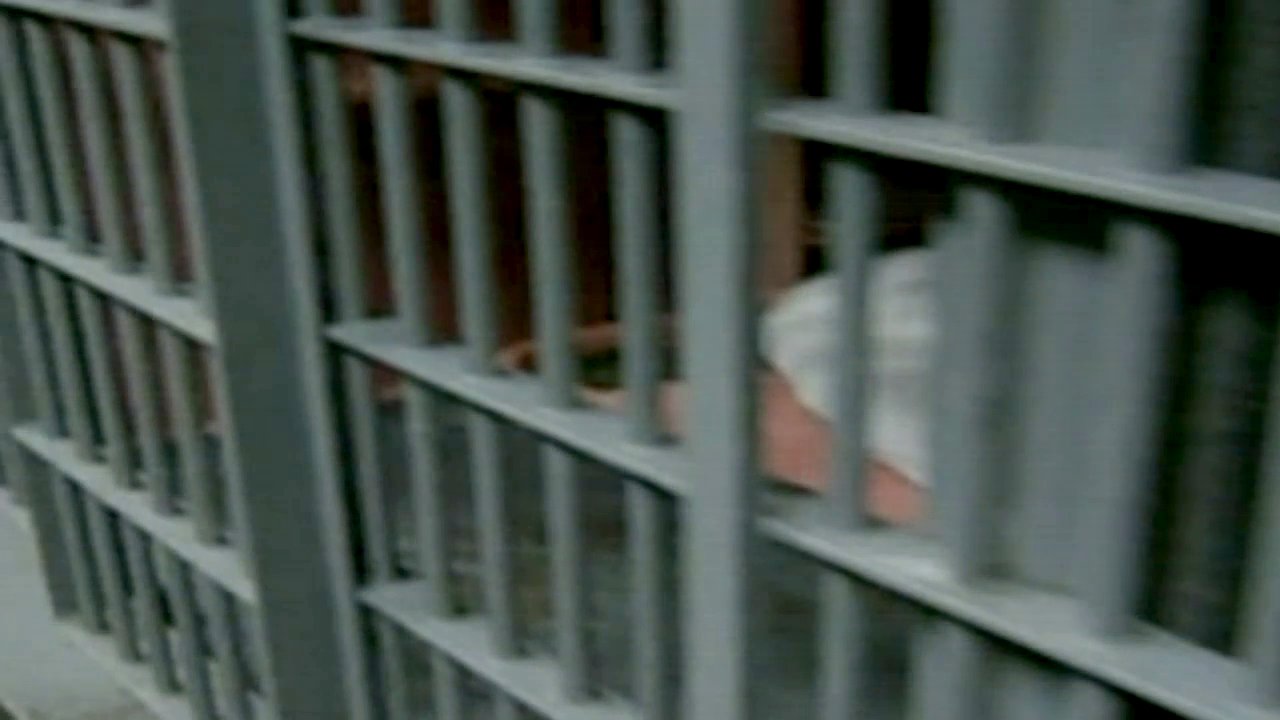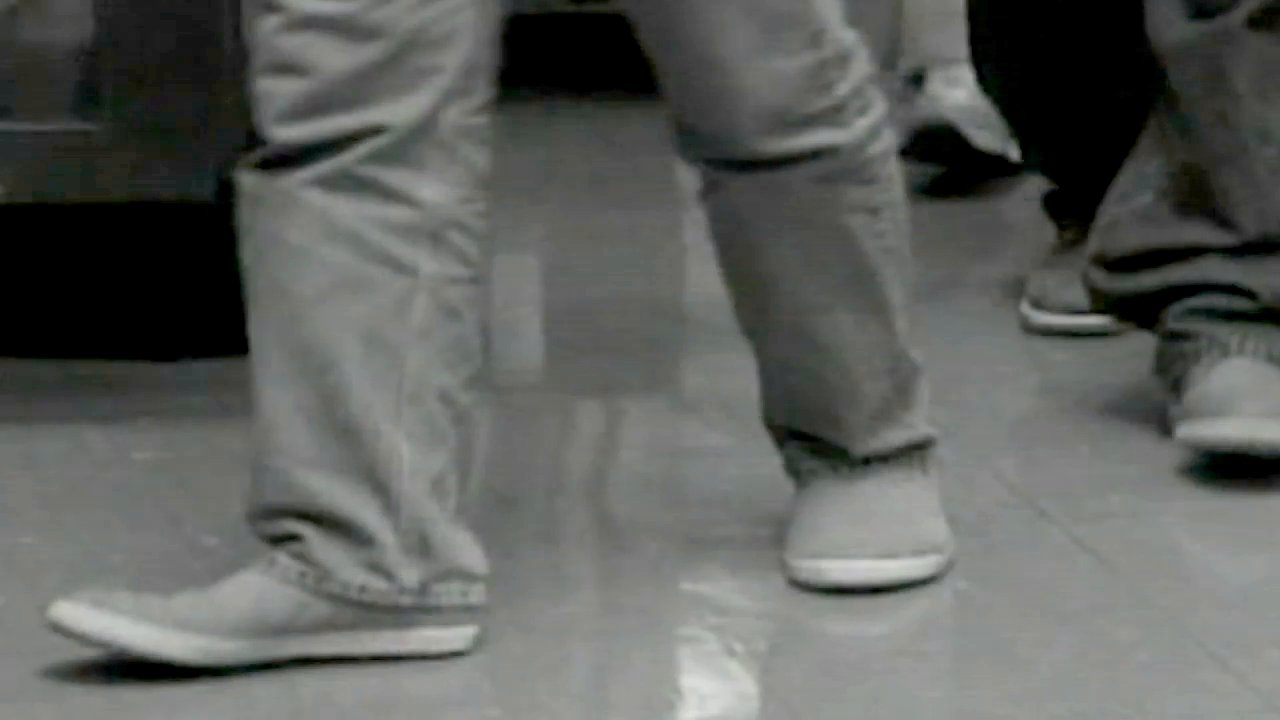Woman found not guilty after 27 months in solitary confinement


RIKERS ISLAND, New York -- Six weeks after her arrival at Rikers Island, an argument over who should clean a jailhouse shower sent Candie Hailey to solitary confinement - known as "the bing."
It was the first time, but it would not be the last.
A month later, records show, she cursed and spit at a guard and resisted when she was put in a hold. Ninety-five days in the bing. She later got 70 days for cursing at an officer, splashing the guard with toilet water and refusing to stop. She was handed 60 days after breaking the light fixture in her cell and using the shards to cut her wrist. Among other infractions: fighting (40 days), disrespect of staff (30 days) and blocking her cell window (15 days).
Of her first 29 months in jail, Hailey served about 27 alone in a 6-by-10-foot cell, with a bed, a toilet and a few books to pass the time. When she did go outside, it was just for one hour in 24. And she had yet to be tried for any crime, let alone convicted.
At least eight times in the course of her more than three-year incarceration, she would be taken to the hospital after suicide attempts in solitary that included trying to swallow hair remover product, pills and the chemicals inside an instant ice pack, banging her head on a wall and trying to electrocute herself by putting a phone cord in her cell's toilet.
Hailey could not abide solitary confinement. But that was the only place her jailers felt they could put her.
Candie Hailey's wretched stay at Rikers - detailed in official documents and hours of interviews - is a case study in solitary confinement and its consequences.
Many criminal justice experts say officials too often rely on solitary to punish inmates, disregarding the effect on troubled men and women like Hailey. Research has shown that solitary can be psychologically distressing, especially for prisoners who go into it with preexisting mental illnesses. Long-term isolation can induce anxiety, depression, paranoia and anger, and studies have found that a lack of medical and psychiatric care can only make it worse.
The result: Prisoners can come out of the bing in worse shape than when they went in.
New York City has begun to wean itself from decades of using solitary as the default way to control difficult-to-manage inmates, turning instead to less punitive methods for inmates under 21 and those with serious mental illnesses.
But even though long-term use of isolation is increasingly being challenged - in statehouses, the courts and even by President Barack Obama, who last month banned its use for juveniles as punishment for low-level infractions in federal prisons - it's still the most common correctional tool nationwide used to keep order.
One former top jail official said Hailey was the most difficult female prisoner the official had encountered in more than a decade. She had never been diagnosed as having mental health issues before her stint at Rikers. But a court-ordered therapist in her child custody case noted just months before her arrest that Hailey, a victim of domestic violence who had also resorted to using her fists in the past, had poor insight and limited judgment.
Doctors at the jail soon found her to have borderline character disorder, mood disorder and anti-social personality disorder.
To Hailey, her own behavior in the bing made sense. She adopted a perverse survival strategy: Act out and you get out, if only temporarily for treatment. She was absolutely defiant.
"I would take the feces and I put it all over me," she recalls. "I said, 'If you're gonna treat me like a dog, I'm gonna act like one.'"
She believed she was treated unfairly from the moment of her arrival at Rikers' 800-bed, all-women's Rose M. Singer Center - Rosie's, as it's called. Her arrest had already been publicized in a city tabloid. Guards and fellow inmates knew exactly who she was and took to calling her the "baby killer."
On a cold February afternoon in the Bronx in 2012, Hailey - then a 28-year-old mother of two - encountered three other women on the street. One of them, Elgielee Haliburton, was pushing her 4-month-old daughter, Hazel, in a stroller. The women, one of whom with which she had a personal feud, exchanged words and within seconds they began a wild fistfight that went on for 15 minutes as they traveled up and down a city block.
Though the three women's accounts at times differed, the gist of their story is this: Hailey, after fighting with the women, ran toward Haliburton's stroller, yelled that she hoped the baby would die and then plunged her hand in a stabbing motion toward little Hazel.
Hailey, who called 911 at least twice over the course of the melee, gave yet another account. She said her purse and wallet were stolen by the other women and that Haliburton tipped the stroller over by leaning on it during the fight, causing her daughter to fall.
What's known is that a 4-month-old baby girl was treated at a hospital for a hairline skull fracture and received three stitches to close a cut above her right eye. No weapon was ever recovered, no video secured or witness statements beyond the women involved in the fight.
Days later, police arrested Hailey on attempted murder charges. She had stabbed a baby, they said.
Shortly after she was jailed, she tried to wrap a phone cord around her neck. A guard noticed, and called for help.
"I'm being treated as a criminal, but I am the victim," she told a mental health worker. "The girls assaulted me and I am in jail. They always arrest without reason. I will kill myself."
When Hailey was examined after the eight suicide attempts at Rikers for which she was hospitalized, doctors and psychiatrists who saw her came to the same conclusion: She was manipulative, a malingerer, intentionally hurting herself to escape solitary or gain a comfort that had been deprived of her. The cause of this behavior, they said, was her underlying personality disorder.
But Hailey wasn't a candidate for units for the most seriously mentally ill because she didn't have a diagnosis of severe depression, bipolar disorder or schizophrenia. So more often than not, after her suicide attempts she was placed on suicide watch and sent back to the bing.
The only mental health care she received in solitary consisted of brief consultations at her cell's door.
In a handwritten suicide note to her father dated July 8, 2014, Hailey said she planned to kill herself after her sister's visit the next week, following her birthday.
"I am innocent and tried to prove it but I can't endure this abuse evermore," she wrote. "The truth will come to light, while death shall set me free."
While in solitary she often argued with guards through the cell door to get everyday items she says were denied her, such as a supportive mattress and kosher meals. Obsessed with cleanliness and unable to shower regularly, she found creative ways to clean herself. She used a tiny plastic cup to fill a bucket with sink water to wash her clothes. Filling the bucket took 40 minutes.
Because she was classified as a high-risk inmate, when she was moved within the facility to meet visitors or to be sent to the health clinic, she was escorted by a captain and other officers and shackled at her wrists and ankles, with protective mitts on her hand and a spit mask covering her face.
She stayed up late. To pass the time she read books - "Roll of Thunder, Hear my Cry," ''The Scarlet Letter," and "Native Son" among others. She wrote poetry, putting into words her frustrations and contempt.
"I do not need a college degree
To realize that we're being abused; spiritually, religiously, emotionally, verbally, sexually and physically.
Then they have the audacity
To label us as 'mentally ill'
Ugh, Ugh, honey!
The mentally ill rock badges and shields."
Hailey's court-appointed attorney, Patrick Higgins, believed he could have worked out a deal with prosecutors to get her out with time served two years into her stint at Rikers. But Hailey refused to plead guilty, insisting she would never hurt a baby. As a result, she would spend another 15 months in jail - including five consecutive months in solitary.
Lawyers seeking to free her from the bing hired a national expert on mental illnesses in jails and prisons to evaluate her medical and mental health.
Dr. Terry Kupers, who did not interview Hailey but reviewed her case file, wrote in a sworn affidavit in the summer of 2014 that was sent to top city officials that it was possible to both have a mental illness and be manipulative. He concluded that continued isolation for Hailey "could lead to her death."
"The vicious cycle must be broken," he wrote. "The punishment for unacceptable behaviors must not involve greater or longer isolation."
Experts say this cycle of solitary confinement is not unique in lockups across the country. The very psychological effects that solitary has been shown to induce, anger, anxiety, and paranoia, often make it harder for inmates in solitary to follow jailhouse rules and orders thus earning inmates more time in solitary as punishment.
After Kupers' affidavit was sent to city officials, Hailey was transferred to a newly created therapeutic unit for difficult inmates. She stayed there, off and on, through the fall, but because she was often disruptive she was regularly moved back to solitary or a so-called Restrictive Housing Unit, a solitary-like unit where inmate are locked alone in cells for extended periods of time but can earn out-of-cell time and other privileges for good behavior.
Last January, when city rules limited the consecutive days an inmate could spend in the bing, Hailey says she was moved to a dorm where she was placed, alone, in a larger, non-solitary cell.
Correction officials wouldn't discuss Hailey's case. But they pointed to recently instituted reforms they say are changing the jails by reducing the reliance on solitary, such as banning it as punishment for low-level infractions, and providing more alternatives for the hard-to-manage, such as creating new housing units.
"Everyone in our custody deserves to be treated safely and humanely," said spokeswoman Eve Kessler, noting that since his appointment nearly two years ago, Commissioner Joseph Ponte has cut the number of inmates serving time in the bing from about 600 to 219 at the end of last month.
By early 2015, Hailey's trial - delayed again and again by the glacially slow timetable common to proceedings in the Bronx's clogged courts - was finally on the horizon.
The trial, last May, took longer than expected because of problems getting Hailey to court. In the course of the trial, she was involved in frequent confrontations with jail guards that often resulted in her being pepper sprayed or physically held. She delayed the proceedings by scratching at still open wounds on her wrists or banging her head against cell bars.
The monthlong trial itself featured testy exchanges and profanity-laced answers from the women who had been involved in the original incident and were reluctant to testify. The jurors took two days to come back with their verdict: not guilty. Hailey was free to return to the Bronx.
An estimated 80,000 to 100,000 people in state and federal prisons are held in solitary on any given day, though advocates argue those 2011 federal figures are likely low. Also unknown are how many of the roughly 700,000 daily jail inmates nationwide who are serving their time in solitary.
"The United States is a nation of second chances, but the experience of solitary confinement too often undercuts that second chance," Obama wrote earlier this year in a Washington Post op-ed. "Those who do make it out often have trouble holding down jobs, reuniting with family and becoming productive members of society."
He could have been talking about the now-32-year-old Hailey.
In more than three years in jail, she spent 2 1/3 years in solitary. And in the nine months since she was freed, she has struggled to break free from the trauma of her confinement.
"Honestly I think I'd be better off in jail," she said after yet another failed trip to court to regain custody of her two children. "It's like a nightmare, like everyone's out there trying to get me."
She had reunited with her younger sisters and father and promptly dissociated from them; struggled to regain her welfare benefits; strove to complete a still-unresolved divorce and revisit a pair of years-old child custody cases. She still faces criminal charges stemming from confrontations with Rikers guards.
"She's a sweet girl," Frankie Johnson, 59, says of his oldest daughter. "But she don't let nobody run over her."
Hailey is a high school dropout who went back to school to get an equivalency diploma and a college degree. Before Rikers, she worked as an early childhood education aide and as a clerk at Kmart. Since her release, she's been unable to find a job.
Housing has been a continuing struggle. She has made multiple trips to court to reclaim her old public housing apartment that have ultimately proved futile. She's since bounced between increasingly unreliable options. She cycled out of two different city shelters, got locked out of a $100-per-week room in the Bronx. An opportunity to live in highly structured supportive living home for formerly incarcerated women ended abruptly after Hailey felt the place was too dirty and she was being singled out to cook more than the others.
By late last year, she had resorted to riding rattling subway trains through the night, with a hard plastic seat for a bed, stopping off at Penn Station and other public spaces to use the bathroom and get warm. Twice since her release, she's tried to kill herself. And for months she stopped attending weekly counseling sessions.
"Me talking to a therapist, I don't see how that's going to help me," she said. "I'm still homeless. I have no job. I have no sanitary napkins. So how is talking to me going to help?"
Jane Stanicki, a volunteer with the nonprofit Hour Children, which at one point offered Hailey the structured housing, worries that the time she endured in Rikers has broken her.
"You take a human being and put her in that confinement and then you say, 'OK, go live your life,'" she said. "It's terribly challenging for anyone to be able to do that."
Just before the end of the year, Hailey gained placement in another apartment for people with mental health problems and agreed to return to counseling. But she was still fearful her cycle of problems would never end: "I think it all came from solitary confinement. I don't think I'll ever be normal again."
Still, she describes herself as a "solitary survivor."
"I would say I've been through hell and back," she said. "My soul died but my body is alive."











